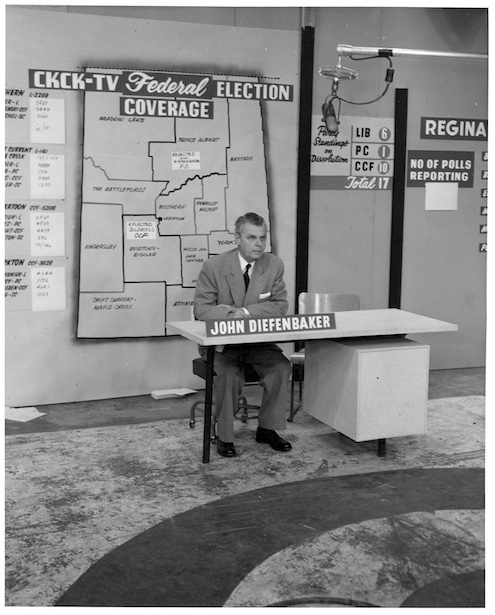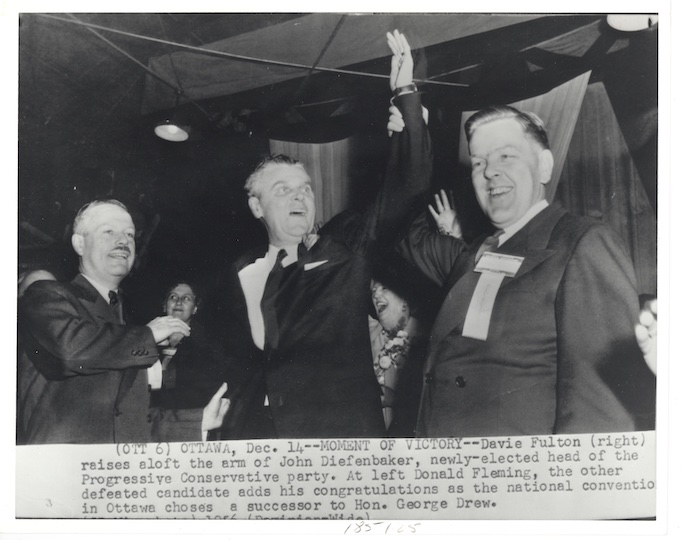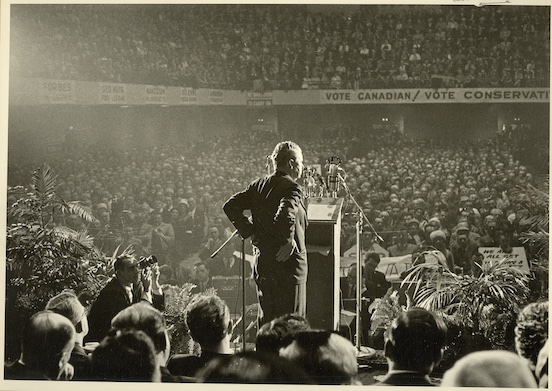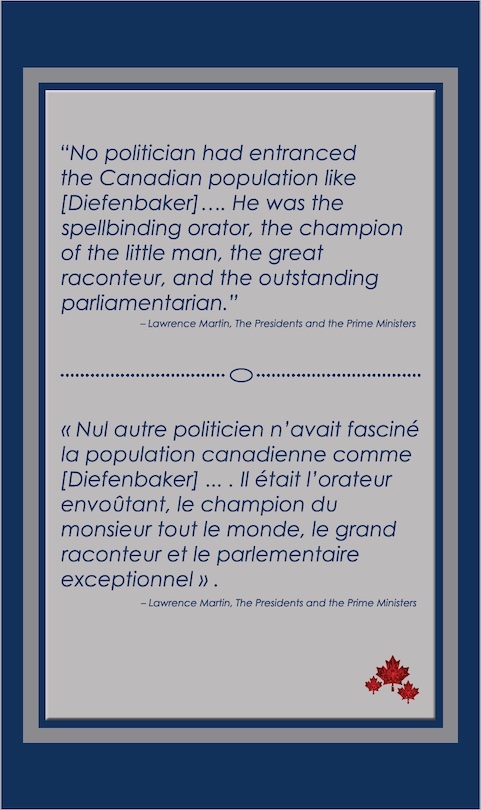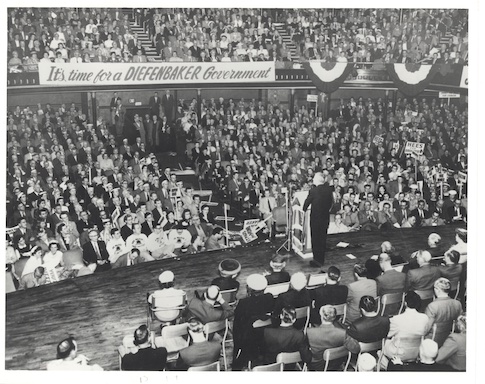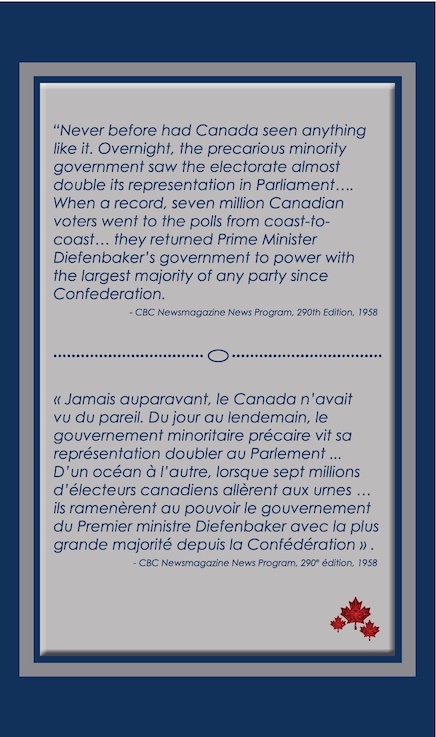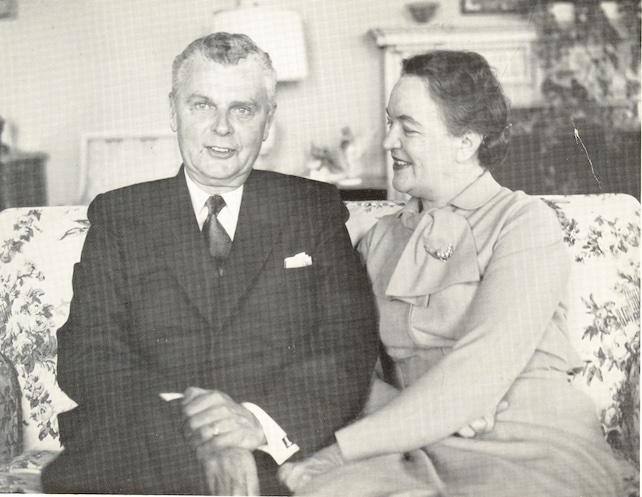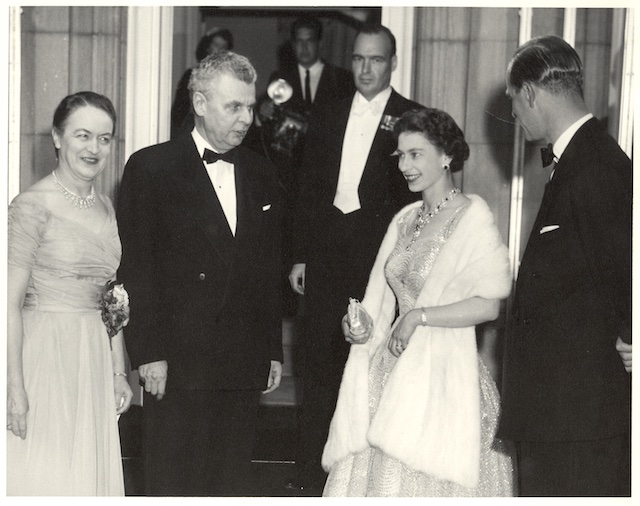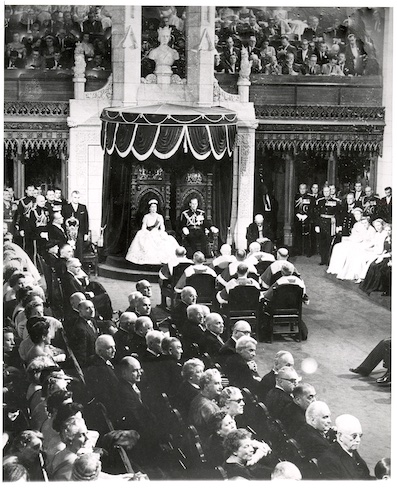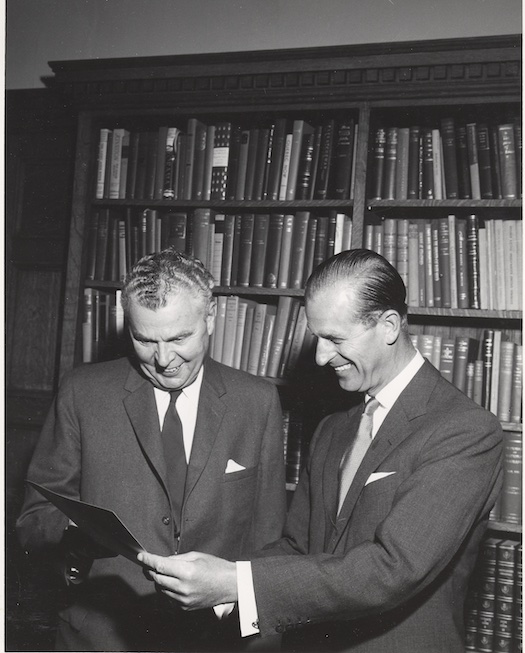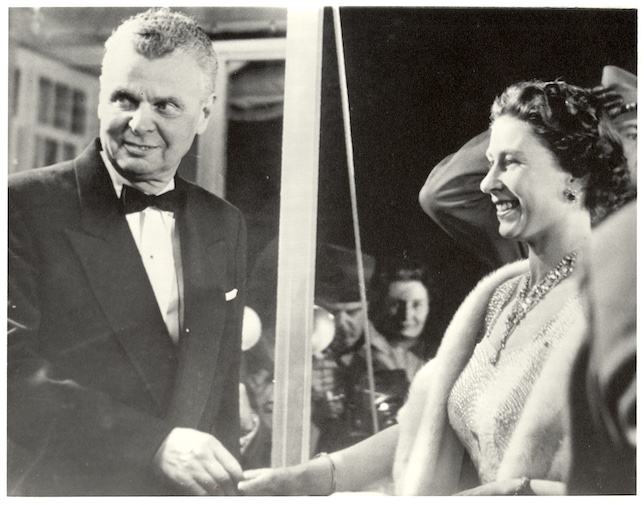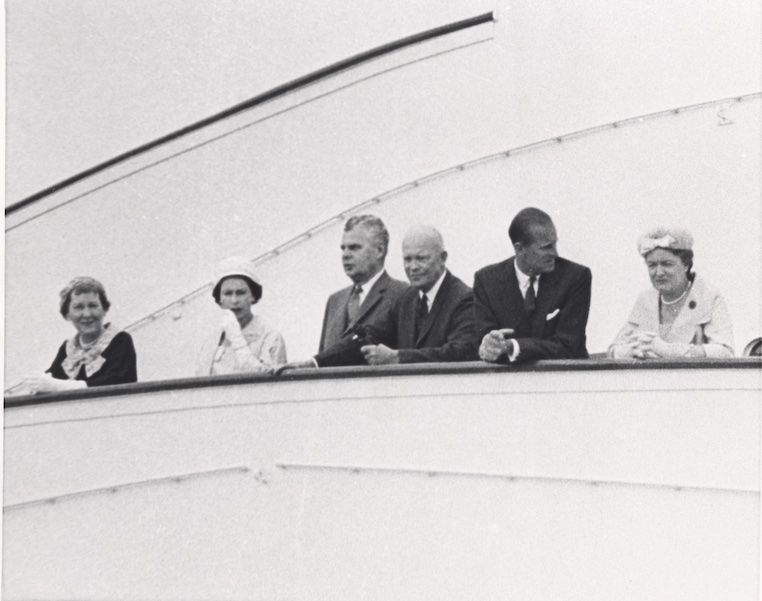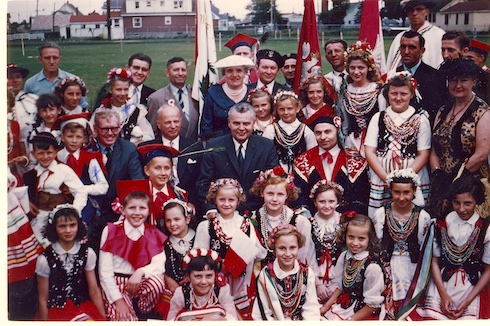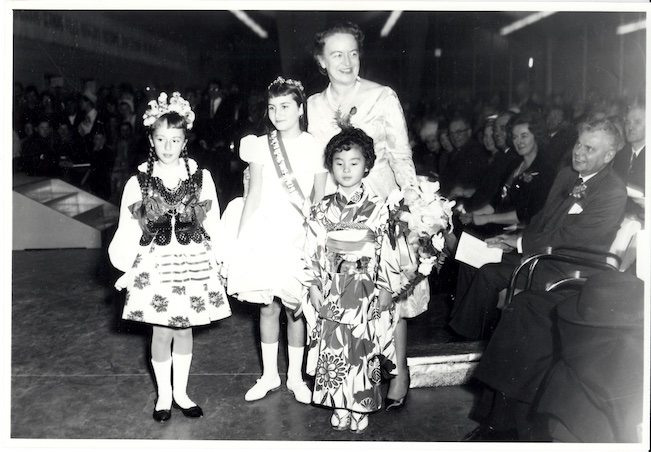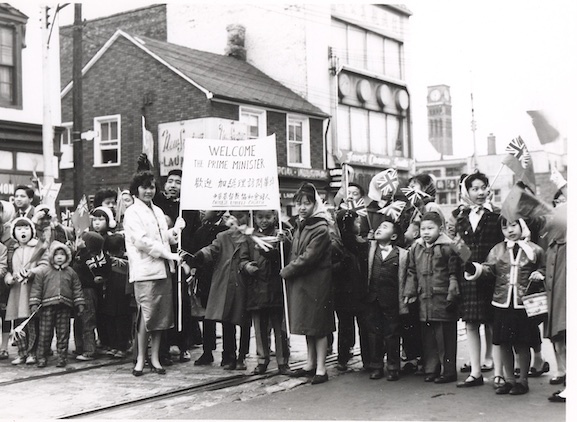Setting the Bar
In December of 1956, Diefenbaker was elected as the Progressive Conservative Party leader. He had been the Leader of the Official Opposition for only one month when Prime Minister Louis St. Laurent called an election. Confident of an easy victory, the Liberals put little effort into their campaign whereas Diefenbaker reached out to Canadians through national telecasts with his inspiring message of “One Canada.” The resulting Progressive Conservative (Tory) minority government shocked the Liberals, who had been in power for twenty-two years.
The Road to Victory
Nine months after Diefenbaker’s minority government win, the Opposition called for the Government’s resignation. However, the Liberals underestimated the overwhelming public support that the Progressive Conservatives had gathered in less than one year. Diefenbaker’s appeal was undeniable—thousands of people gathered at every campaign stop he made across Canada. At the opening rally in Winnipeg, huge crowds pushed past the closing doors into an overfilled hall where he was speaking.
“[Following] . . . that speech, as he was walking to the door, I saw people kneel and kiss his coat. Not one, but many. People were in tears. People were delirious.”
– Pierre Sévigny, 1958
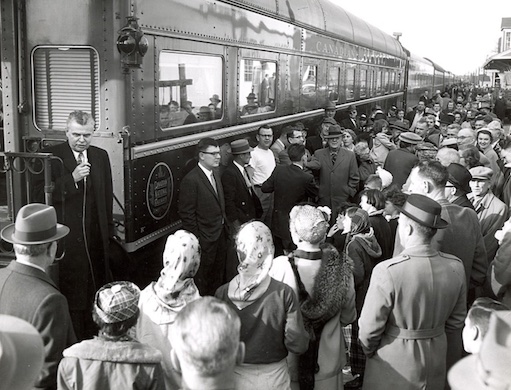 |
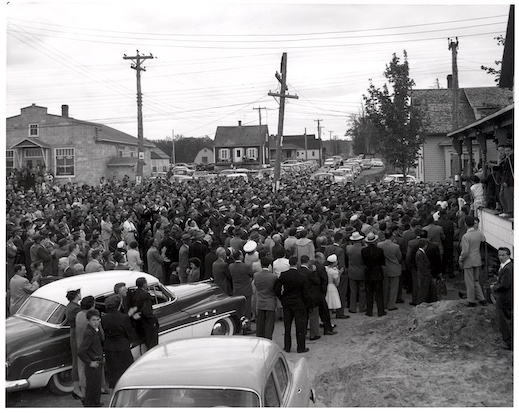 |
Diefenbaker the Orator
Diefenbaker was famous for his dramatic, evangelical speaking style, which he perfected as a lawyer. Juries were captivated by his piercing blue eyes, powerful voice and commanding knowledge of the law. After he entered politics, he crushed opponents with passionate, eloquent speeches delivered with conviction and cutting sarcasm. Canadians could not resist “Dief the Chief” and his fervent message of “One Canada,” where the “average Canadian” would be protected and represented by his government.
An Overwhelming Triumph
On March 31st, 1958, Diefenbaker’s Tories won a historic 208 of the 265 seats in the House of Commons, in what remains the largest federal majority, in percentage of seats, in Canadian political history. The voter turn-out was 79.4%. This victory was a personal as well as a political triumph for Diefenbaker, and a pivotal moment for Canada.
Olive Freeman Diefenbaker: Guidance and Support
Olive married Diefenbaker in 1953. Olive was an anchor for Diefenbaker during his challenging years in office. As his confidante and informal advisor, she witnessed her husband’s political rise and fall, and remained at his side to provide guidance and support. Diefenbaker publicly expressed that, “[Olive] was with me through the years. No one will ever be able to adequately express my debt to her.”
The couple’s devotion to each other was unmistakable. When Olive died of a heart attack in 1976, Diefenbaker ensured in his will that she would be reburied with him at the Diefenbaker Canada Centre on the University of Saskatchewan campus.
The Canadian Bill of Rights
Diefenbaker was the first MP to call for a Bill of Rights in the House of Commons in 1948. Two years later, he stated again that this would “…guarantee the preservation of fundamental political, constitutional, and personal freedoms [by standing] …against discrimination based on colour, creed or racial origin.”
In 1960, his lifelong dream was fulfilled when the Canadian Bill of Rights was passed. As a federal statute, it was limited in power and inoperative in amending provincial law. Nonetheless, it is still viewed as a monumental step toward legislating human rights, and laid the foundation for the 1982 Canadian Charter of Rights and Freedoms.
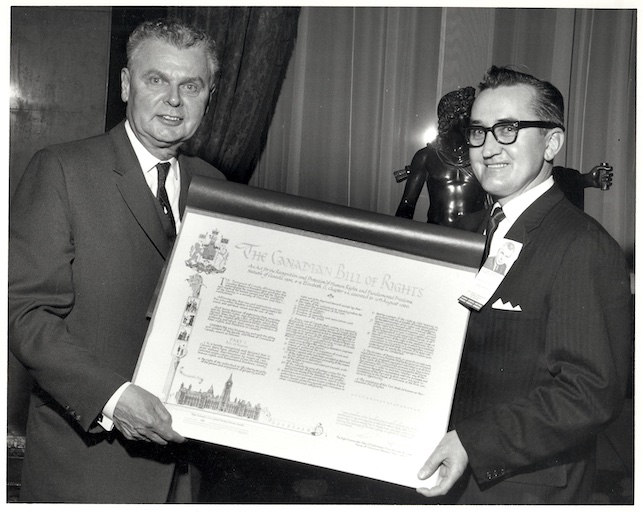 |
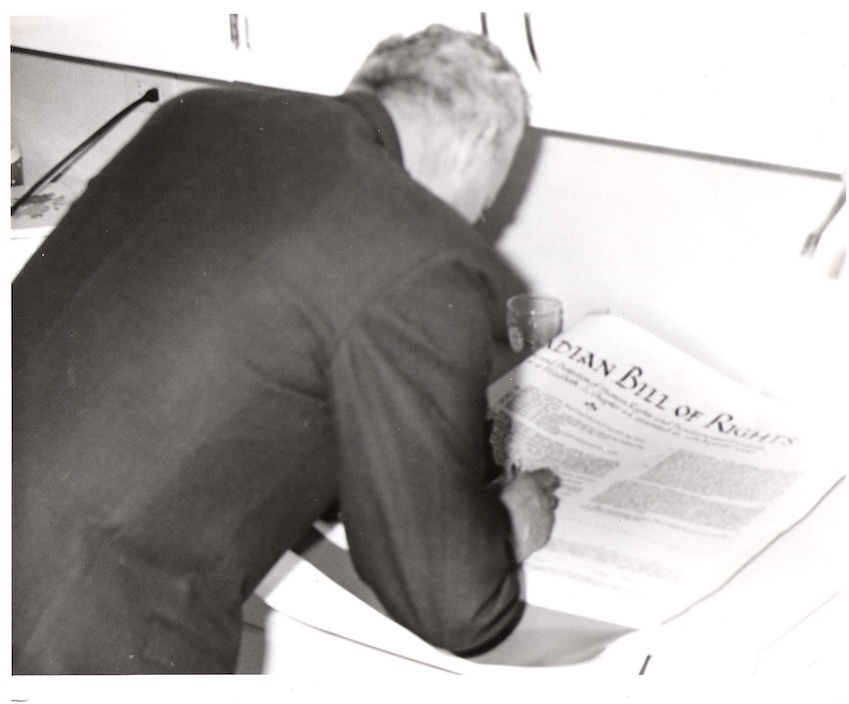 |
In Her Majesty’s Service
Diefenbaker was a great admirer and defender of the British Parliamentary system, and was intensely dedicated to the Crown. After Diefenbaker’s electoral triumph in 1957, Queen Elizabeth II opened Parliament by personally delivering the Speech from the Throne – the first time that a monarch had done so in Canada. Setting another precedent, Diefenbaker ensured that the event was broadcast on national television.
Unity Through Diversity
Diefenbaker envisioned a truly inclusive Canada where distinct identities would be a source of unity rather than division. His policies reflected his belief that within “One Canada,” circumstances of geography or differences in social station could be overcome. His achievements provided the groundwork upon which successive governments based formal multicultural policies.

